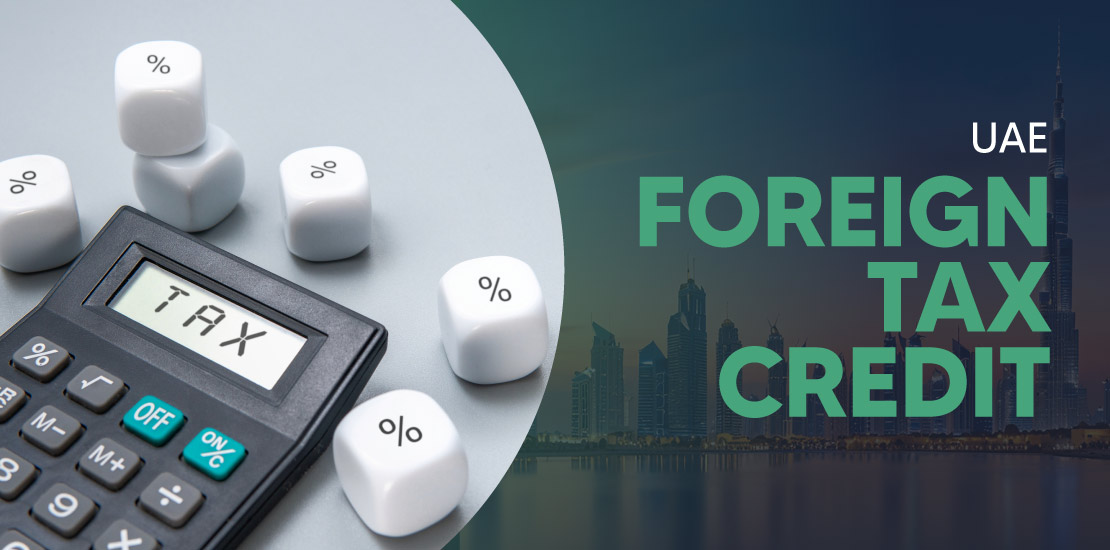Table of Contents
- What is a Double Tax Treaty?
- Overview of the France-UAE Double Tax Treaty
- Key Provisions of the France–UAE Double Tax Treaty
- Who Benefits from the Treaty?
- Avoidance of Double Taxation – How It Works
- How to Claim Benefits Under the Treaty
- Benefits for French Businesses Investing in the UAE
- Maximize Treaty Benefits with Shuraa Tax Guidance
- Commonly Asked Questions
Paying taxes in two different countries for the same income sounds unfair, right? That’s exactly why double tax treaties exist. These agreements between countries make sure you don’t end up paying tax twice on the same earnings. They clearly define where your income should be taxed – in the country where you earn it or the country where you live – making cross-border business and investment much simpler and fairer.
The France–UAE Double Tax Treaty, first signed on 19 July 1989 and updated in 1993, is one such agreement. It sets out clear rules for how various types of income such as like salaries, dividends, capital gains, or business profits are taxed when money flows between France and the UAE. The treaty also explains what it means to be a “tax resident” and when a business is considered to have a “permanent establishment” in either country.
This treaty is especially valuable for investors, expatriates, and companies working between France and the UAE. For example, French citizens or businesses earning in the UAE can enjoy more clarity and fewer tax obligations since the UAE does not impose personal income tax. Similarly, UAE residents or firms investing in France can benefit from reduced withholding taxes and fairer tax treatment.
In simple terms, understanding this treaty can help you save money and plan your taxes smarter.
What is a Double Tax Treaty?
A Double Tax Treaty (DTT) is an agreement between two countries that ensures the same income isn’t taxed twice. Imagine you earn money in one country while living in another – without a treaty, both countries could ask you to pay tax on the same income. That’s where a DTT comes in to prevent this problem. Beyond protecting individuals and businesses from extra taxes, DTTs also encourage cross-border trade and investment.
Overview of the France-UAE Double Tax Treaty
The UAE and France Double Tax Treaty was signed in 1989 and came into effect in 1990. This agreement was created to make cross-border financial activities between the two countries simpler, fairer, and more predictable.
Key Objectives:
The treaty serves three main purposes:
- Avoidance of double taxation: Ensures that individuals and businesses do not pay tax twice on the same income in both countries.
- Prevention of tax evasion: Encourages transparency and cooperation between France and the UAE’s tax authorities.
- Encouragement of mutual investment: Provides certainty and protection for investors, making it easier to invest or do business across borders.
Taxes Covered Under the Treaty:
The treaty mainly applies to income taxes and corporate taxes, covering various forms of income, including:
- Salaries and wages
- Business profits
- Dividends, interest, and royalties
- Capital gains
Key Provisions of the France–UAE Double Tax Treaty
The France–UAE Double Tax Treaty aims to prevent individuals and businesses from being taxed twice on the same income. Here’s a breakdown of the main provisions:
1. Residence & Permanent Establishment
- Resident: The treaty defines who is considered a “resident” of France or the UAE for tax purposes.
- Dual residency: If a person or company qualifies as a resident in both countries, the treaty provides tie-breaker rules to determine primary residency.
- Permanent establishment (PE): Businesses are considered to have a PE if they have a fixed place of business in the other country, which determines where business profits are taxable.
2. Withholding Tax (WHT) Rates on Passive Income
One of the most favourable aspects of the France-UAE DTT is the zero-rate withholding tax on key passive income streams flowing between the two countries.
| Type of Income | Source Country WHT Rate (Treaty) | Key Details |
|---|---|---|
| Dividends | 0% | Dividends paid by a French company to a UAE resident (or vice-versa) are generally subject to a 0% withholding tax rate in the source country. |
| Interest | 0% | Interest payments arising in one country and paid to a resident of the other are subject to a 0% withholding tax rate in the source country. |
| Royalties | 0% | Royalties (payments for the use of intellectual property, patents, trademarks, etc.) are subject to a 0% withholding tax rate in the source country. |
Note: While the DTT sets the maximum rate for France to impose WHT on payments to the UAE, the UAE’s domestic law currently maintains a 0% WHT rate on most payments to non-residents (including dividends, interest, and royalties) under its Corporate Tax Law.
3. Taxation of Capital Gains
The treaty allocates the right to tax capital gains based on the nature of the asset being sold:
- Immovable Property: Gains derived from the disposal of real estate (immovable property) are taxed in the country where the property is located (situs principle).
- Real Estate Rich Companies: Gains from the alienation of shares in a company whose assets consist predominantly (typically more than 50% or 80%) of immovable property located in France are generally taxable in France.
- Other Assets: Gains from the disposal of non-real estate assets, such as shares not related to property and other financial securities, are generally taxed only in the country where the seller is a tax resident (e.g., in the UAE if the seller is a UAE resident).
4. Employment Income
- UAE Residents: Employment income earned in the UAE is generally exempt from French tax, unless the individual performs services in France for more than 183 days in a year.
- French Residents: Employment income earned in the UAE is generally exempt from French tax, subject to specific conditions.
5. Taxation of Business Profits (Permanent Establishment – PE)
The DTT uses the concept of a Permanent Establishment (PE) to determine when a company from one country must pay corporate tax in the other.
- General Rule: Business profits of an enterprise of one country are only taxable in the other country if the enterprise carries on business through a PE situated in that other country. If a PE exists, only the profits attributable to that PE may be taxed in the host country.
- Fixed Place PE: A PE typically includes a place of management, branch, office, factory, or workshop.
- Construction/Installation Projects: A building site or construction, installation, or assembly project constitutes a PE only if it continues for a period of more than six months.
- Dependent Agent PE: An enterprise is deemed to have a PE if a dependent agent habitually exercises authority to conclude contracts on behalf of the enterprise in the host country.
6. Inheritance and Wealth Tax
- Inheritance Tax: Covered under the treaty; however, French inheritance tax applies to French real estate.
- Wealth Tax (IFI): Non-residents are subject to IFI only on French real estate; foreign assets are not taxed.
7. Tax Residency and Treaty Benefits
To claim treaty benefits, UAE residents must provide a Tax Residency Certificate issued by the UAE Federal Tax Authority. The treaty includes provisions to prevent abuse and ensure that benefits are not granted to entities lacking substantial economic activity.
Who Benefits from the Treaty?
The France–UAE Double Tax Treaty is designed to help individuals and businesses that have financial ties between the two countries. Here’s who can benefit:
1. Expatriates and Employees
Individuals living in one country but earning income from the other – like a French citizen working in the UAE or a UAE resident earning French dividends- can avoid being taxed twice. Salaries, pensions, and other personal income are covered, making it easier to plan finances and reduce tax liabilities.
2. Businesses and Companies
- Companies operating in both countries can benefit from lower withholding taxes on dividends, interest, and royalties.
- Businesses with permanent establishments in the other country know exactly how their profits will be taxed, helping them make smarter investment and expansion decisions.
- The treaty also encourages cross-border trade, making it easier for French and UAE businesses to collaborate without facing double taxation issues.
3. Investors
- Individuals or companies investing in property, stocks, or businesses in the other country benefit from reduced or exempt taxes on returns.
- Investors enjoy legal certainty when it comes to tax obligations, making the France–UAE market more attractive for long-term investment.
Avoidance of Double Taxation – How It Works
One of the main goals of the France–UAE Double Tax Treaty is to ensure that income isn’t taxed twice. The treaty uses two common methods to achieve this: the exemption method and the credit method.
1. Exemption Method
Under the exemption method, certain types of income earned in one country are completely exempt from tax in the other country. For example, if a UAE resident earns income in France that falls under the treaty’s exemption rules, France may tax it, but the UAE will not. This method completely removes the risk of being taxed twice on the same income.
2. Credit Method
The credit method allows the country of residence to give a tax credit for taxes already paid in the other country. For instance, if a French resident earns income in the UAE and pays UAE taxes, France may still tax the income, but the French tax authority will deduct the UAE tax paid from the French tax liability. This ensures the total tax doesn’t exceed what would have been paid in one country alone.
How to Claim Benefits Under the Treaty
If you’re earning income or running a business between France and the UAE, you can take advantage of the treaty to avoid double taxation. Here’s how you can claim the benefits:
1. Get a Tax Residency Certificate
A tax residency certificate proves that you are a resident of either France or the UAE. This certificate is usually issued by your country’s tax authority and is required to apply for treaty benefits
2. Determine the Type of Income
Identify the income type (e.g., dividends, interest, royalties, business profits, employment income). The treaty provides different rules and exemptions depending on the type of income.
3. Submit the Required Documentation
Provide the tax residency certificate, proof of income, and any other supporting documents to the tax authority where you’re claiming relief.
4. Apply for Tax Relief
Depending on the method used (exemption or credit), request either a full exemption from double taxation or a tax credit for taxes already paid in the other country.
5. Consult a Tax Expert
The process can be complex, and small mistakes can delay or reduce your benefits. Firms like Shuraa Tax can guide you through every step, from preparing documents to submitting applications, ensuring you get the full benefit of the treaty.
Benefits for French Businesses Investing in the UAE
The France–UAE Double Tax Treaty provides several important advantages for French companies looking to invest or operate in the UAE:
- Avoids double taxation: Profits earned in the UAE are generally taxed only in one country, reducing the overall tax burden and providing financial certainty.
- No UAE withholding tax: Dividends, interest, and royalties paid to French businesses are exempt from withholding tax, allowing profits to be repatriated efficiently.
- Clear rules on business profits: The treaty defines what constitutes a permanent establishment (PE), helping companies understand where their income is taxable and avoid disputes.
- Encourages long-term investment: Reduced tax risks and clear regulations make the UAE an attractive destination for French businesses to expand, establish branches, or hold long-term stakes.
- Simplifies cross-border operations: From paying employees to distributing profits or receiving royalties, the treaty provides guidance that streamlines financial and administrative processes.
Maximize Treaty Benefits with Shuraa Tax Guidance
The France–UAE Double Tax Treaty plays a vital role in simplifying taxation for individuals, expatriates, and businesses operating between the two countries. It helps avoid paying taxes twice and provides clear rules on how different types of income are taxed, making cross-border work and investment simpler and more predictable.
That said, international tax rules can still be tricky. Getting advice from tax experts is important to make sure you’re following the rules, claiming all the benefits you’re entitled to, and planning your taxes in the best way. Firms like Shuraa Tax can help with treaty applications, paperwork, and smart tax planning so you don’t have to worry about mistakes.
If you’re a French national or business operating in the UAE, Shuraa Tax can help you make the most of this treaty and ensure full compliance with UAE Corporate Tax regulations.
For customised advice and assistance, you can reach out to Shuraa Tax:
📞 Call: +(971) 44081900
💬 WhatsApp: +(971) 508912062
📧 Email: info@shuraatax.com
Commonly Asked Questions
1. What is the France–UAE Double Tax Treaty?
It’s an agreement between France and the UAE to prevent individuals and businesses from paying tax on the same income in both countries.
2. Who can benefit from this treaty?
French or UAE residents, businesses, and investors earning income or operating in the other country can benefit.
3. What types of income does the treaty cover?
It covers dividends, interest, royalties, business profits, employment income, capital gains, and real estate income.
4. How does the treaty avoid double taxation?
Through the exemption method (income taxed in only one country) and the credit method (tax paid in one country is credited in the other).
5. Can French businesses investing in the UAE get tax relief?
Yes. They may benefit from reduced withholding taxes, clear rules on business profits, and legal certainty when operating across borders.













